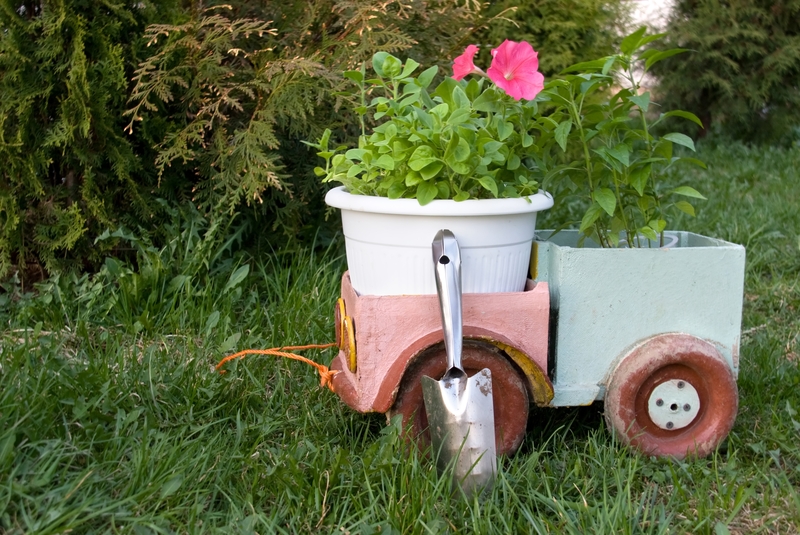Engaging Kids in the Journey of Recycling Education
Recycling education for kids is rapidly becoming a cornerstone in shaping a more sustainable future. By instilling recycling habits early, we equip children with tools to make environmentally conscious decisions that last a lifetime. As waste management challenges rise globally, teaching the next generation about recycling in engaging, meaningful ways isn't just an option--it's a necessity. In this comprehensive guide, we'll explore creative strategies, benefits, and hands-on activities to make the journey of recycling education for kids both fun and impactful.
Why is Recycling Education Vital for Children?
Children are naturally curious. When provided with knowledge and interactive opportunities, they can become sustainability champions in their homes, schools, and communities. The earlier they learn about the importance of recycling, the greater their positive environmental impact will be.
- Building Responsible Habits: Introducing recycling concepts early helps ingrain eco-friendly routines that last into adulthood.
- Fostering Environmental Stewardship: Kids exposed to recycling lessons develop a sense of ownership and care for the world around them.
- Encouraging Critical Thinking: Understanding waste segregation and recycling processes enhances analytical and problem-solving skills.
- Promoting Community Engagement: Young learners inspire families and peers to participate in local recycling efforts.

Key Elements of Effective Recycling Education for Kids
To maximize the impact of recycling education, it's essential to design programs that are engaging, age-appropriate, and actionable. Here are crucial elements to consider:
1. Make It Visual and Tactile
- Interactive Displays: Use colorful posters, sorting bins, and real-life examples.
- Recycling Crafts: Let kids create art or useful objects from old containers and newspapers.
2. Incorporate Storytelling and Games
- Children connect deeply with relatable stories featuring recycling heroes or animated characters.
- Recycling-themed board games, quizzes, and scavenger hunts can boost retention and enthusiasm.
3. Connect Recycling to Everyday Life
- Show how recycling impacts their neighborhoods, parks, and wildlife habitats.
- Discuss common household items that can be recycled--bottles, cardboard boxes, and cans.
4. Encourage Active Participation
- Let kids be "Recycling Captains" at home or school.
- Organize recycling drives or clean-up events where every child plays an important role.
Creative Ways to Teach Kids About Recycling
Innovative teaching approaches can enhance children's enthusiasm for sustainability. Here are several ways to make recycling education engaging for kids:
Start with Stories and Books
Children's literature is full of inspiring tales focused on environmentalism and recycling. Books such as "Michael Recycle" and "The Adventures of a Plastic Bottle" introduce these concepts in fun, approachable ways. After reading, discuss the story and ask children to reflect on how they can emulate the characters' eco-friendly habits.
Organize Hands-On Recycling Workshops
- Sorting Game: Lay out various household items and challenge kids to sort them into correct bins (plastic, paper, metal, compost, landfill).
- Upcycling Sessions: Encourage making flower pots from plastic bottles or DIY pencil holders from tin cans.
This boosts recognition skills and creativity, making the lessons both memorable and enjoyable.
Tip: Involve schools in hosting regular workshops, inviting local waste management experts to discuss recycling practices and share exciting real-world stories.
Use Technology for Digital Learning
- Interactive recycling apps, educational cartoons, and online quizzes add an element of modern learning.
- Virtual tours of recycling facilities or landfills help children see the process behind the scenes.
Lead by Example at Home and School
Children mimic adults. Make sure recycling bins are visible and labeled at home and in classrooms. Share your own recycling routine, and invite kids to participate: rinsing containers, flattening boxes, and bringing items to the correct bins.
Engaging Classroom Activities for Recycling Education
Classrooms are perfect environments to nurture recycling knowledge in children. Here are proven activities that blend learning with fun:
Recycling Relay Races
- Divide students into teams.
- Set up "recycling stations" (paper, plastic, glass, trash).
- Give each team a pile of mixed items and have them race to correctly sort everything. The fastest, most accurate team wins!
Design a Recycling Poster Competition
- Challenge students to design posters explaining why recycling matters.
- Display winning posters in hallways or around the community.
This exercise reinforces key messages and spreads awareness beyond the classroom.
Hosting a Mini Recycling Center
- Set up a classroom recycling center with bins for different materials.
- Rotate "Recycling Manager" responsibilities weekly, giving each student a leadership opportunity.
Bringing Recycling Home: Practical Tips for Parents
Parents play a pivotal role in children's recycling education. Home is where sustainable habits are put into practice daily:
- Label and Decorate Bins: Add pictures and colorful stickers to make sorting appealing for younger kids.
- Set Family Recycling Challenges: Track how much you recycle each week and celebrate your progress.
- Visit Local Recycling Facilities: Arrange family trips to see the recycling process first-hand.
- Share Inspiring Media: Watch documentaries or cartoons focused on recycling and discuss what you learned.
Remember, consistency and positive reinforcement go a long way--praise their efforts and make recycling a regular part of your routine.
Using Community Initiatives to Strengthen Recycling Education
Communities can multiply the impact of recycling education for children through coordinated initiatives:
Community Clean-Up Events
- Organize neighborhood drives where families and children collect recyclables and clean public spaces.
- Offer rewards for the most material gathered, or creative upcycled projects.
Partner with Local Organizations
- Work with environmental non-profits or city councils to distribute recycling resources to schools and homes.
- Invite guest speakers to share success stories and the impact of recycling in the local community.
Recycling Fairs and Exhibitions
- Set up booths demonstrating how different materials are recycled locally.
- Showcase projects created by children using recycled materials.
Benefits of Early Recycling Education for Kids
Emphasizing recycling from a young age carries numerous long-term benefits for individuals, families, and the planet:
- Environmental Protection: Reduced waste, conservation of natural resources, and less pollution.
- Personal Growth: Kids gain confidence, responsibility, and leadership skills.
- Academic Development: Recycling lessons often intersect with science, math, and social studies, enriching the overall learning experience.
- Community Building: Collective efforts foster a sense of unity and purpose among children and adults alike.
Common Challenges in Recycling Education (And How to Overcome Them)
While teaching children about recycling is rewarding, it may come with obstacles:
1. Confusion Over What's Recyclable
- Use simple, illustrated guides and hands-on practice to clarify what can and cannot be recycled locally.
- Regularly update as municipal recycling rules change.
2. Lack of Motivation or Interest
- Infuse lessons with games, competitions, and rewards for recycling milestones reached.
- Frame recycling as an adventure with collective goals and real-world impact.
3. Limited Access to Facilities
- If local recycling is unavailable, focus on reducing and reusing at home and in the classroom.
- Start small recycling initiatives or advocate for better community resources.
How Technology and Media Can Support Recycling Learning
Today's digital landscape offers exciting opportunities to enhance recycling education for kids:
- Educational Videos: Platforms like YouTube and National Geographic Kids offer lessons on how recycling saves animals and the planet.
- Mobile Apps: Sorting games and virtual recycling programs turn learning into play.
- Social Media Campaigns: Inspire families to share their own recycling achievements and tips.

Long-Term Impact: Building the Next Generation of Eco-Leaders
Embedding recycling education into a child's daily journey goes far beyond immediate actions. It lays a foundation for life-long stewardship of the environment. Kids who learn to reduce, reuse, and recycle become adults who drive policy, technology, and social change toward a cleaner, healthier planet.
Conclusion: Every Step Counts in Teaching Kids About Recycling
Engaging kids in the journey of recycling education is an ongoing effort that blends creativity, community involvement, and consistency. When adults, schools, and communities work together, children learn that their actions matter. With the right knowledge and tools, our youngest citizens can lead the way in building resilient, sustainability-focused societies.
Ready to start your own recycling journey with your kids? Remember--every small change adds up, and together, we can pave the way for a greener tomorrow!
- Further Reading:
- EPA's Guide to Recycling for Kids
- National Geographic Kids: Recycling Resources
- Local community programs and school resources